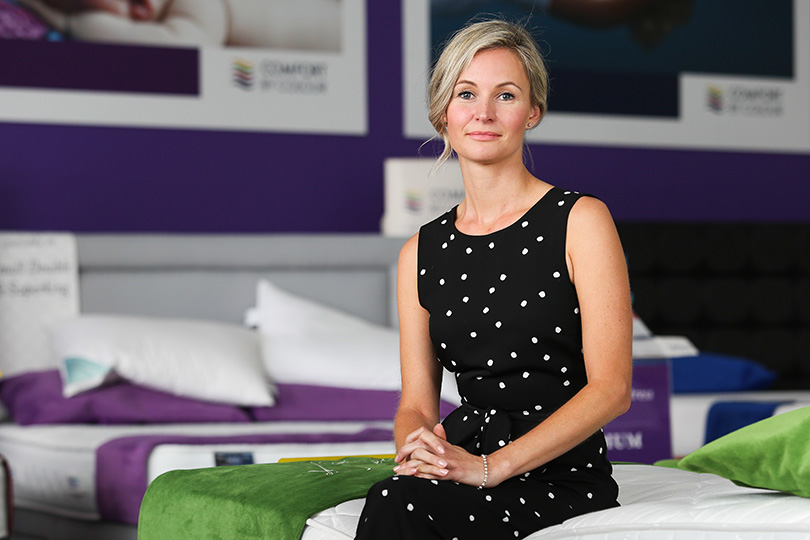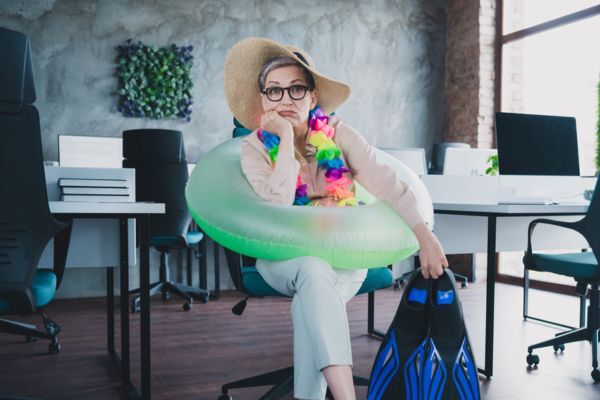How to stop coronavirus affecting your sleep: an expert's tips
In these strange and uncertain times, many in the travel industry will be struggling with their sleep. Kathryn Pinkham, CBT expert and founder of the Insomnia Clinic, offers her tips for improving sleep during the coronavirus crisis
Before we look at ways to improve sleep during these stressful times, we need to recognise the reasons why sleep is currently being impacted by the coronavirus crisis:
Anxiety
Sleep and anxiety don’t go well together at the best of times and at the moment everyone is under so much more stress. So if we wake up in the night, we are far more likely to struggle to get back to sleep again.
We’re also busy during the day and we can try to ignore what we are worrying about by distracting ourselves or pushing thoughts to one side. Then when we get into bed and it’s silent and dark, it’s the perfect time for these worries and thoughts to come flooding back.
If we start to spend time awake in bed worrying, it becomes a habit and we eventually connect our bed to anxiety so it’s really important to stop that happening.
Lack of routine
Our bodies thrive on routine – we usually eat at the same time every day or exercise at the same time, for example. At the moment people don’t have to set their alarm clocks for the usual time and they don’t have to do school runs. Their entire day is different. This impacts on our sleep as in order to sleep well and have good quality sleep, we need a strong “sleep drive”. That “drive” is built up by time out of bed. For example if you get up at 6am and go to bed at 11:30pm, you’ve been out of bed for a long time and you’ve built up a strong drive, so when you go to bed, you’re truly tired, you get a nice quality of sleep, and you naturally wake up early the next day.
At the moment travel professionals may be getting up later as they’re not sleeping particularly well, they’re probably spending a lot more time in the bedroom maybe watching TV, there’s a lot more sitting around generally, and then they’re going to bed early so they don’t have a drive meaning there’s not enough appetite for sleep. If you get into bed and you’re not tired enough, you’re really vulnerable to your mind kicking in and starting to worry.
Not being able to get outside
Our body needs daylight and fresh air to be able to understand the difference between day and night and to develop the sleep hormone melatonin. More screen time can inhibit our production of melatonin because the blue light confuses your brain into thinking that it’s daylight. Lack of daylight and fresh air means we can’t give our body the cues it needs to recognise when it’s day or night.
Top tips for sleeping well
1. Maintain a bedtime routine. If anything, go to bed later than normal and get up earlier to keep your sleep drive strong. Set an alarm for as early as you can in the morning and make sure you actually get up. Then stay out of bed for as long as you can – don’t go to bed unless you’re really tired, and resist the temptation to lounge around in your bedroom in the day. Also ensure you get dressed every day and put your makeup on if that’s what you’d ordinarily do. Do the things that tell your body and your brain, “This is normal life, keep going.” Don’t behave like you’re giving in.
2. Don’t clock watch. If you wake up in the night or you can’t get to sleep in the first place, don’t check the clock or your phone as it triggers anxiety. The more we look at the time, the more we’re setting an internal alarm clock to keep waking up and checking the time at the same time each day.
3. Manage your anxiety. Don’t process your worries at night. Every day, take a pen and paper and give yourself 20 minutes to sit and write down anything you’re worried about – the things you’re ordinarily telling yourself not to dwell on. It’s a really therapeutic way of saying to your brain, “I’m not ignoring the worry, but I’m going to deal with it proactively when I can, rather than it being there 24 hours a day niggling in the background.” It also gives you a different perspective as you’ll realise you probably only have two or three things to worry about. Then you can challenge those thoughts and worries, learning to let go of things you can’t fix, and making a plan to fix the things you can.
4. Get as much fresh air and daylight as you can. Open the blinds or curtains in the morning and let as much daylight and air into the house. Don’t sit around in dim lighting as that’s going to make you feel very lethargic.
5. Get your expectations in line and change your perspective on what’s important right now. If you have a lot on and are worried about financial pressures, your work or your health, no amount of sleep is currently going to make you feel really happy and motivated. Be realistic. It’s important that we get the best quality of sleep that we can, but also look at other ways to feel better: make sure you’re talking to people on the phone, do something you find relaxing, give yourself some time off from work. Focus as much on stress relief as you do on sleep because that’s going to make you feel better.
The Insomnia Clinic is currently offering free sleep webinars. For register, click here















